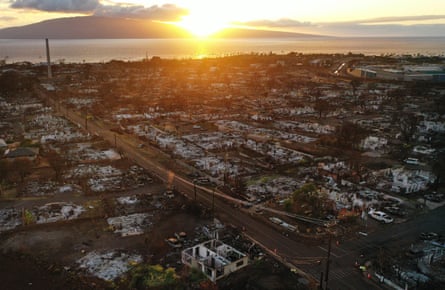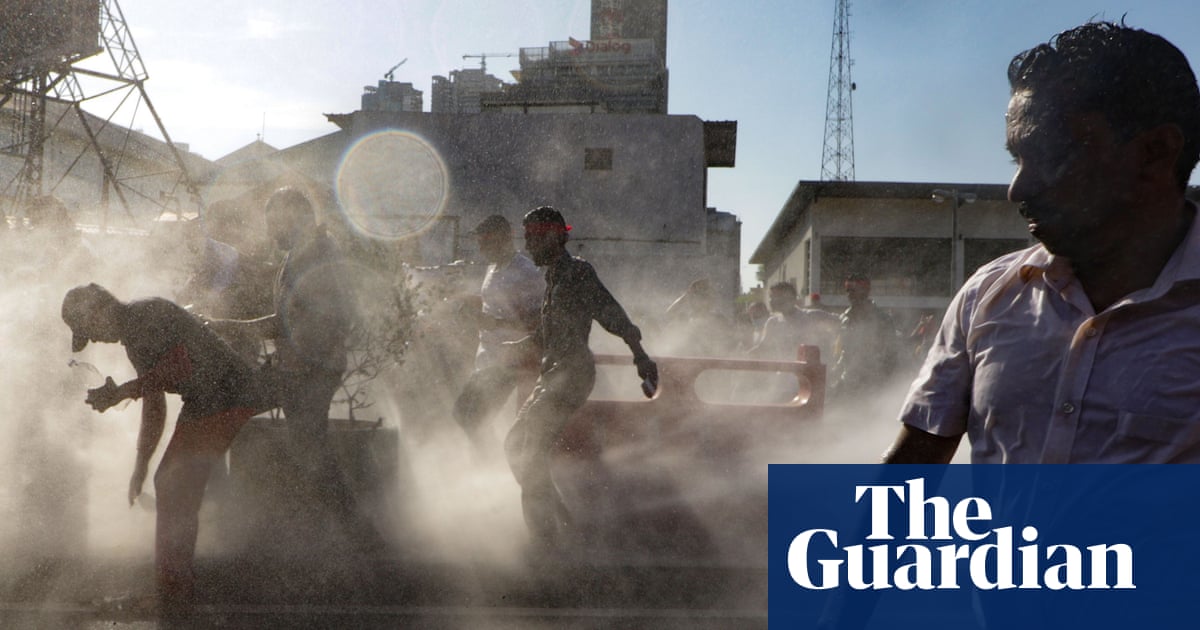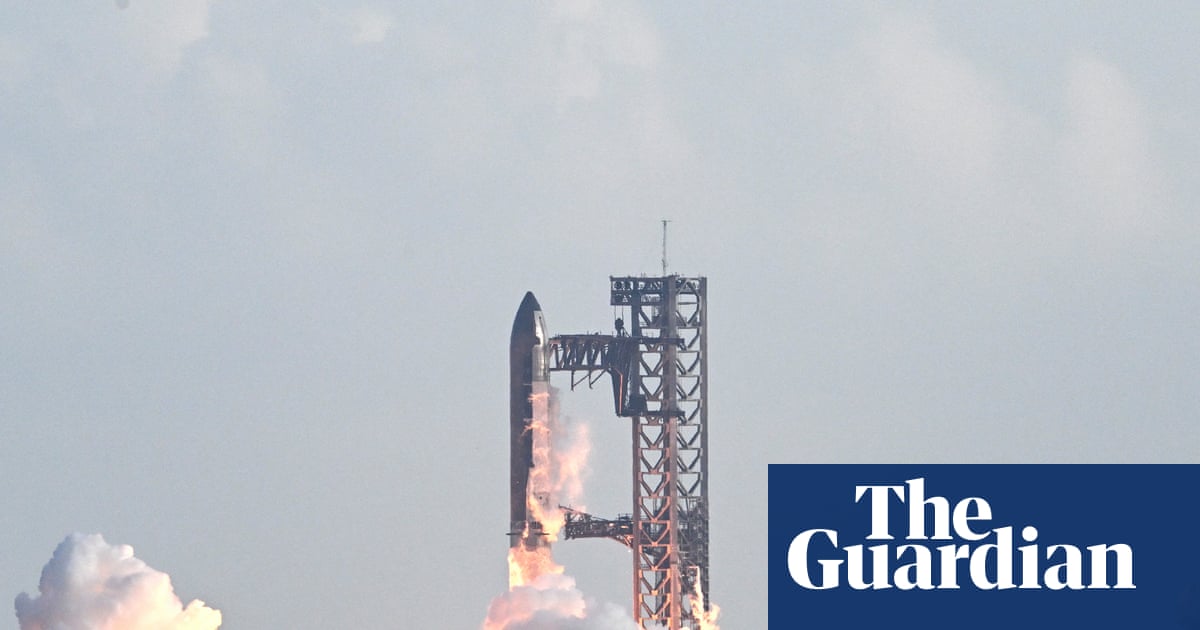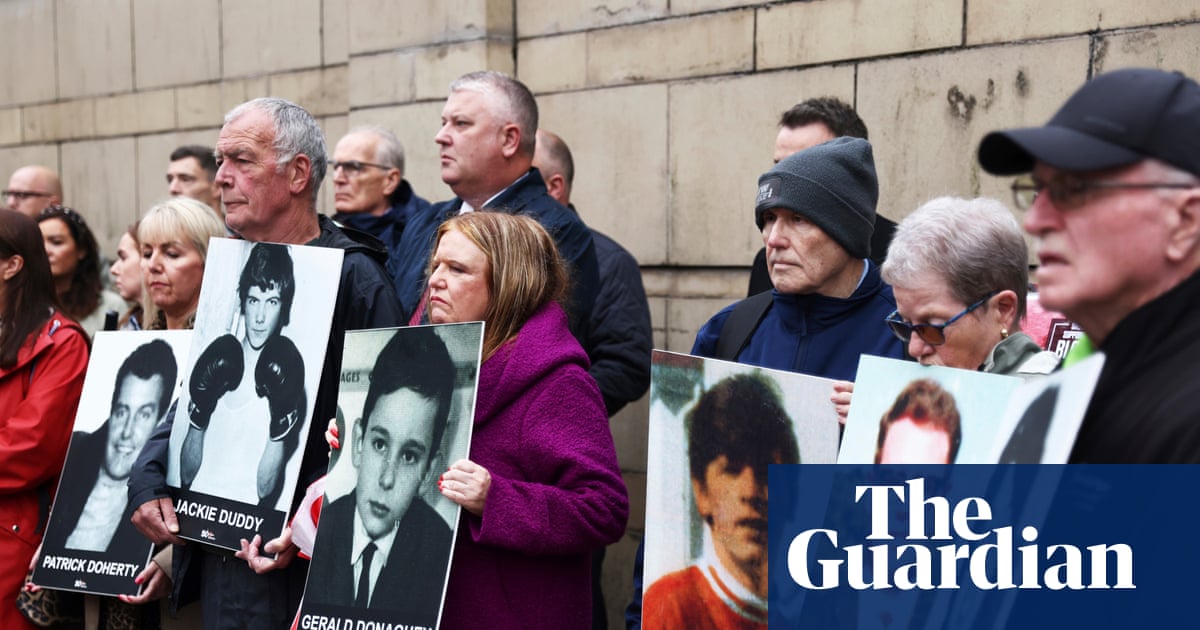Sexual exploitation and domestic violence soared after the catastrophic Lahaina wildfire in 2023, with pre-existing gender inequalities exposed and exacerbated by the post-disaster response, new research has found.
In the weeks and months after the deadliest American fire in a century, one in six female fire survivors surveyed felt forced to engage in sexual acts in exchange for basic necessities such as food, clothing and housing.
Immigrant women and other limited English speakers felt particularly isolated and unsafe in emergency shelters, with some sleeping with their children in vehicles – or engaging in “survival sex” for a safer place to stay, according to the new report by Tagnawa, a Filipino feminist disaster response organization in Hawaii, shared exclusively with the Guardian.
Filipinos constitute the largest immigrant community in Hawaii, accounting for around 40% of the Lahaina population before the fire – the majority women. Researchers conducted in-depth surveys with 70 Filipino women survivors.
At least 102 people died and more than 2,000 homes were destroyed on 8 August 2023 after 50 miles per hour winds supercharged a fire that ripped through the historic town of Lahaina in West Maui, leaving thousands without shelter and access to adequate health and other basic services.
The housing crisis was made worse by the political decision to reopen West Maui to tourists just two months after the devastating fire – despite widespread opposition from traumatized survivors and community advocates. Reopening the tourism industry compounded a sense of powerlessness among survivors, and may have exacerbated male rage and fueled forms of domestic violence such as coercive control, the research found.
Amid the ruins that saw extended families separated and stuck in hotels for months, some displaced fire survivors reported feeling increasingly trapped in violent relationships with no safe place to go. Others remained silent due to financial dependence on the abusive partner or relative – which at times was exacerbated by the way disaster aid was organized around a male head of the household.
In the first two months after the fire, calls to a 24/7 crisis hotline run by Women Helping Women (WHW), Maui’s main domestic violence service, more than doubled. Reports of sexual assault and substance misuse also surged.
“Some men are trying to control anything they can control because so little is out of their control, especially with the current rebuilding of Lahaina. Anything they can control their money, kids, partner that’s heightened. Tourism added another layer of things out of our control,” Jordan Ruidas, a community organiser from Lahaina Strong, told researchers.
More than 18 months after the fire, anecdotal reports from key experts suggest intimate and intra-familial violence among survivors remains high.
Equality in Flames is a first-of-its-kind research exploring how the 8 August 2023 devastating fire compounded existing gender – and racial – inequalities in West Maui. The report is based on state and county health and crime data, the in-depth surveys Filipino women survivors, and accounts from local experts in mental and reproductive health, gender based violence, criminal justice and community organizing.

Overall, the findings suggest that the Lahaina fire – and the response to it – increased the number of people at-risk of sex-trafficking and commercial sexual exploitation by exacerbating known risk factors including domestic violence, substance abuse disorders, financial precarity and unstable living situations.
The report adds to a small but growing body of feminist research exploring the unequal impact of climate and environmental disasters in the US – especially on Indigenous, immigrant and working class women and children.
The post-disaster response in Lahaina was largely coordinated by the Federal Emergency Management Agency (Fema) and the American Red Cross.
According to the report, Fema and the Red Cross failed to adequately adapt their practices to local conditions or approach fire survivors through a culturally sensitive lens, in part because they rolled out a “one-size-fits all” recovery package without adequately consulting local experts.
Fema and the Red Cross did not provide adequate opportunities for victims to report sexual and domestic violence, and may have unintentionally exacerbated gender-based violence especially among displaced people of color, immigrants, and non-English proficient survivors, the report found.
“The fact that in the richest country in the world women had to resort to any means necessary to meet basic human needs and survive a fire, is absolutely a critique of the entire American system – and the problem with having that system forced onto Hawaii,” said co-author Khara Jabola-Carolus, a Filipino community organizer and the former executive director of the State of Hawaii’s commission for women.
“Fires spark the harmful side of masculinity that other environmental disasters just don’t do, yet gender remains the elephant in the room,” added Jabola-Carolus.
Environmental disasters – wildfires, earthquakes, floods, drought and hurricanes – always impact men and women unequally.
In general, women die at higher rates during water-related disasters like floods – mostly because globally girls are less likely to be taught to swim, whereas men are more likely to die in fires. In Lahaina, some female survivors said that male partners and relatives chose to act “macho” and stayed behind to protect the home, contributing to the disproportionate male fatalities.
Incidents of domestic violence (felony abuse with injury of a family member) increased in both 2023 and 2024, according to Maui police department data. Requests for temporary restraining orders also rose after the fire, judiciary personnel reported.
Yet in some cases, calls to the police by domestic violence victims actually increased their vulnerability, as unscrupulous landlords sought to evict the entire family to avert unwanted attention on their housing unit.
As of 20 April 2025 only 10 homes in Lahaina have been rebuilt, and the majority of survivors remain displaced in temporary accommodation or else have left the island.
In one grim but positive outcome, several cases of child sexual abuse were uncovered as a result of the fire disrupting normal routines – some of which may have gone hidden otherwise, according to judiciary personnel.
Yet overall, official figures show reports of sexual and domestic violence to health professionals and law enforcement fell in the aftermath of the fire.
This could be down to what’s known as post-disaster silence, according to experts, with victims fearful of speaking out due to their financial dependency on perpetrators, the diversion of law enforcement into disaster efforts and the failure to provide safe, culturally appropriate ways for victims to report gender based violence in shelters and other aid hubs.
The lack of safe spaces was particularly marked for immigrant women in Lahaina.
One in five female Filipino survivors said they have felt unsafe in places where they sought shelter since the fires, while 56% have experienced an increase in conflict at home. A staggering 16% engaged in “survival sex” – kissing, hugging, touching and intercourse with a landlord, an employer, family members, friends and acquaintances. The most common reasons included obtaining enough food (86%), clothes (71%), long-term housing (48%) and temporary shelter (43%).
The high concentration of Filipino women in Lahaina can be traced back to the sugar plantation oligarchies which for decades controlled labor migration – as well as access to land and water.
The report calls for the urgent nuts-and-bolt reform of emergency management in the US, putting gender at the heart of future disaster planning and response that is in line with international best practice. Amid worsening wildfires and other climate-related disasters, its recommendations could serve as a blueprint especially in places with large immigrant populations, according to co-author Jabola-Carolus.
“Everyone knows that violence against women and children should be considered a primary concern during wildfires and other disasters, not a secondary issue to be addressed after the provision of basic needs. There are plenty of inexpensive fixes, and far less wealthy countries all over the world that really put the Unites States to shame.”
In a statement, the department of homeland security assistant secretary blamed Joe Biden, claiming without any evidence that the former president used Fema as a “piggy bank, spending hundreds of millions of American taxpayer dollars to housing illegal aliens”.
Hawaii governor’s office declined to comment. Red Cross did not respond.

 3 months ago
81
3 months ago
81

















































